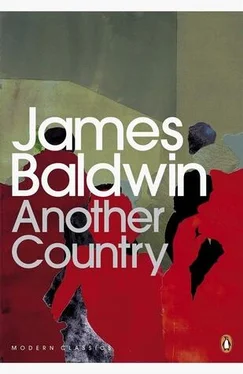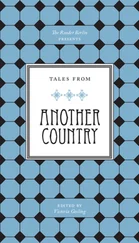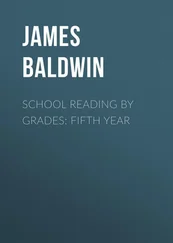“Your hands are cold,” he said, for the hand which held his was very dry, and the fingertips were cool.
“That’s supposed to mean that I’ve got a warm heart,” said Ida, “but what it really means is poor circulation.”
“I prefer,” he said, “to believe that you’ve got a warm heart.”
“I was counting on that,” she said, with a laugh, “but when you get to know me better you’ll find out that I’m the one who’s right. I’m afraid,” she said, with a teasing, frowning smile, “that I’m usually right.” She added, “About me.”
“I wish I knew you better,” he said.
“So,” she said, with a short, light laugh, “do I!”
Richard returned. Michael, grave and shy, came out of his exile and he and Paul were given ginger ales on the rocks. Cass appeared in a high-necked, old-fashioned, burgundy-colored dress, and with her hair up. Richard put on a sport shirt and a more respectable-looking sweater, and Ida vanished to put on her face. The people began to arrive.
The first to arrive was Richard’s editor, Loring Montgomery, a chunky, spectacled, man, with smooth, graying hair, who was younger than he looked — nearly ten years younger, in fact, than Richard. He had a diffident manner and a nervous giggle. With him was Richard’s agent, a dark-haired, dark-eyed young woman, who wore much silver and a little gold, and whose name was Barbara Wales. She, too, had a giggle but it was not nervous, and a great deal of manner but it was not diffident. She apparently felt that her status as Richard’s agent created a bond of intimacy between herself and Cass; who, helplessly and miserably mesmerized, and handicapped by the volume of Miss Wales’ voice and the razorlike distinctness of her syllables, trotted obediently behind her into the bedroom where coats and hats were to be deposited and where the women could repair their makeup.
“The bar is over here,” Richard called, “whatever you’re drinking, come and get it.”
“I could stand another drink,” Vivaldo said. “I’ve been drinking all day and I can’t get drunk.”
“Are you trying to?” asked Ida.
He looked at her and smiled. “No,” he said, “no, I’m not trying to. But if I were, I couldn’t make it, not today.” They stood facing the window. “You’re going to have supper with me, aren’t you?”
“You’re not hungry, al ready ?”
“No. But I’m going to be hungry around suppertime.”
“Well,” she said, “ask me around suppertime.”
“You’re not suddenly going to decide you have to go home, or anything? You’re not going to run out on me?”
“No,” she said, “I’m going to stick with you until the bitter end. You’ve got to talk to that agent, you know.”
“Do I have to?” He looked in the direction of the glittering Miss Wales.
“Of course you do. I’m sure it’s one of the reasons Richard wanted you here this afternoon. And you have to talk to the editor, too.”
“Why? I haven’t got anything to show him.”
“Well, you will . I’m sure Richard arranged all this partly for you. Now, you’ve got to cooperate.”
“And what are you going to be doing while I’m having all these conferences?”
“I’ll talk to Cass. Nobody’s really interested in us; we don’t write.”
He kissed her hair. “You are the cutest thing,” he said.
The doorbell rang. This time it was Steve Ellis, who had come with his wife. Ellis was a short, square man with curly hair and a boyish face. The face was just beginning, as is the way with boyish faces, not so much to harden as to congeal. He had a reputation as the champion of doomed causes, reaction’s intrepid foe; and he walked into the drawing rooms of the world as though he expected to find the enemy ambushed there. His wife wore a mink coat and a flowered hat, seemed somewhat older than he, and was inclined to be talkative.
“Great meeting you, Silenski,” he said. Though he was compelled to look up to Richard, he did so with his head at an odd and belligerent angle, as though he were looking up in order more clearly to sight down. The hand he extended to Richard with a bulletlike directness suggested also the arrogant limpness of hands which have the power to make or break: only custom prevented the hand from being kissed. “I’ve been hearing tremendous things about you. Maybe we can have a chat a little later.”
And his smile was good-natured, open, and boyish. When he was introduced to Ida, he stood stock-still, throwing out his arms as though he were a little boy.
“You’re an actress,” he said. “You’ve got to be an actress.”
“No,” said Ida, “I’m not.”
“But you must be. I’ve been looking for you for years. You’re sensational!”
“Thank you, Mr. Ellis,” she said, laughing, “but I am not an actress.” Her laugh was a little strained but Vivaldo could not know whether this was due to nerves or displeasure. People stood in smiling groups around them. Cass stood behind the bar, watching.
Ellis smiled conspiratorially and pushed his head a little forward. “What do you do, then? Come on, tell me.”
“Well, at the moment,” Ida said, rather pulling herself together, “I work as a waitress.”
“A waitress. Well, my wife’s here, so I won’t ask you where you work.” He stepped a little closer to Ida. “But what do you think about while you walk around waiting on tables?” Ida hesitated, and he smiled again, coaxing and tender. “Come on . You can’t tell me that all you want is to get to be head waitress.”
Ida laughed. Her lips curved rather bitterly, and she said, “No.” She hesitated and looked toward Vivaldo, and Ellis followed her look. “I’ve sometimes thought of singing. That’s what I’d like to do.”
“Aha!” he cried, triumphantly, “I knew I’d get it out of you.” He pulled a card out of his breast pocket. “When you get ready to make the break, and let it be soon, you come and see me. Don’t you forget.”
“You won’t remember my name, Mr. Ellis.” She said it lightly and the look with which she measured Ellis gave Vivaldo no clue as to what was going on in her mind.
“Your name,” he said, “is Ida Scott. Right?”
“Right.”
“Well, I never forget names or faces. Try me.”
“That’s true,” said his wife, “he never forgets a name or a face. I don’t know how he does it.”
“I,” said Vivaldo, “am not an actress.”
Ellis looked startled, then he laughed. “You could have fooled me,” he said. He took Vivaldo by the elbow. “Come and have a drink with me. Please.”
“I don’t know why I said that. I was half-kidding.”
“But only half. What’s your name?”
“Vivaldo. Vivaldo Moore.”
“And you’re not an actress—?”
“I’m a writer. Unpublished.”
“A ha ! You’re working on something?”
“A novel.”
“What’s it about?”
“My novel’s about Brooklyn.”
“The tree? Or the kids or the murderers or the junkies?”
Vivaldo swallowed. “All of them.”
“That’s quite an assignment. And if you don’t mind my saying so, it sounds just a little bit old-fashioned.” He put his hand before his mouth and burped. “Brooklyn’s been done. And done.”
No it hasn’t, Vivaldo thought. “You mean,” he said, with a smile, “that it doesn’t have any TV possibilities?”
“It might have, who knows?” He looked at Vivaldo with friendly interest. “You really have a sneer in your voice when you say TV, you know that? What are you so afraid of?” He tapped Vivaldo on the chest. “Art doesn’t exist in a vacuum; it isn’t just for you and your handful of friends. Christ, if you knew how sick I am of this sensitive-young-man horseshit!”
Читать дальше












